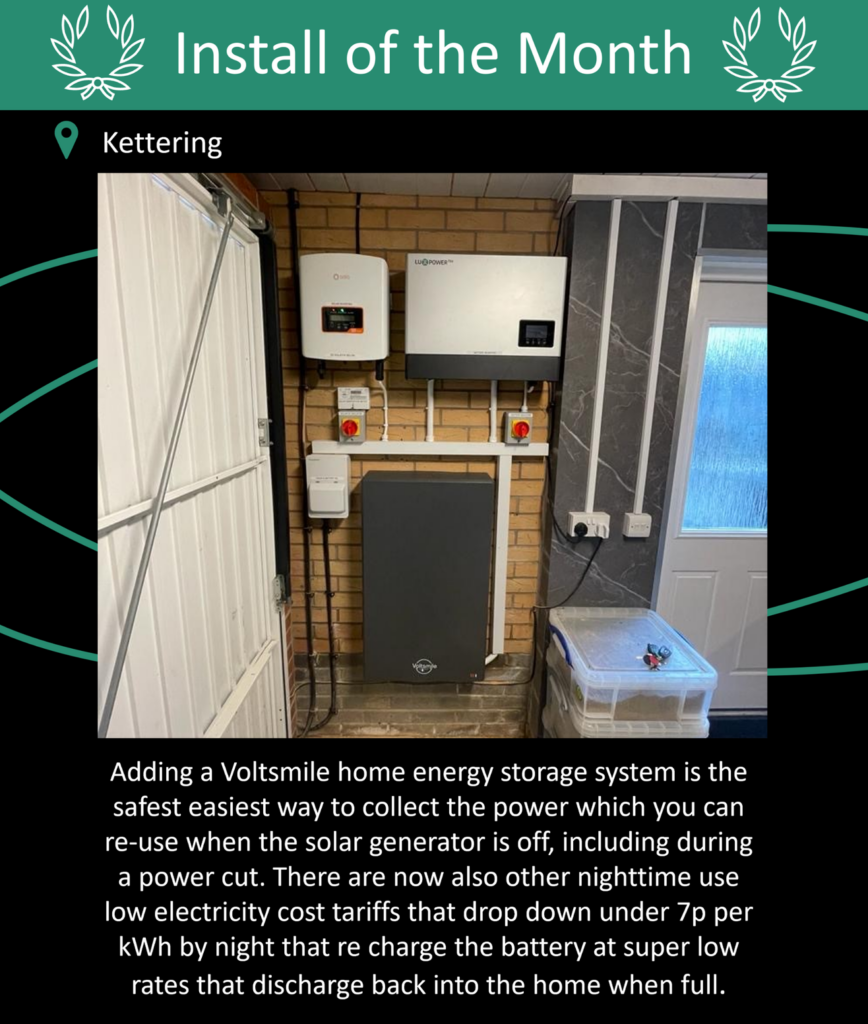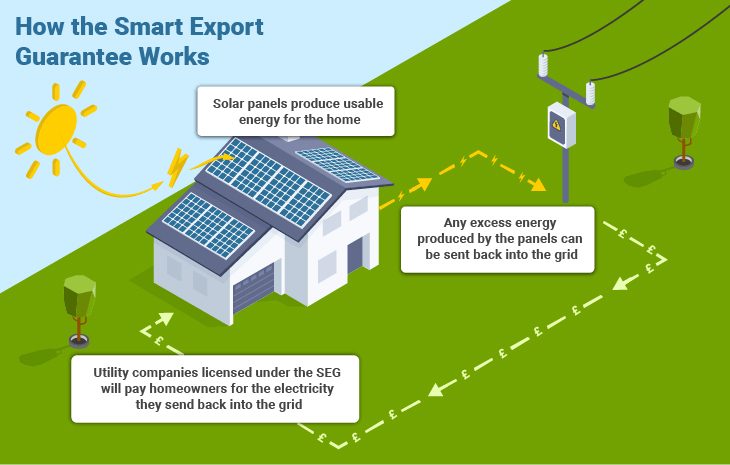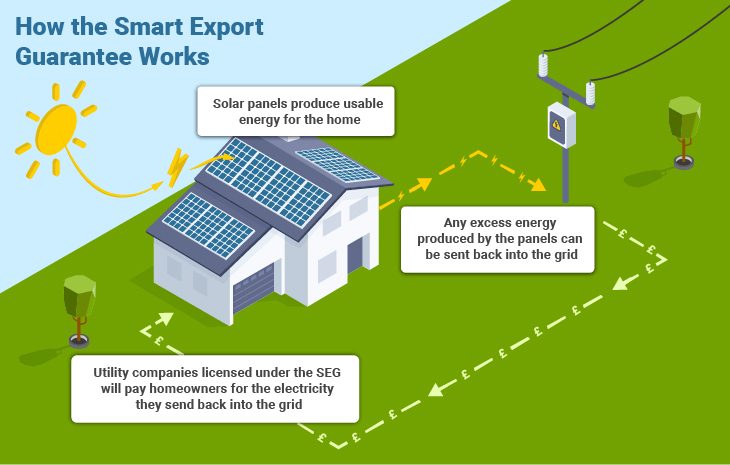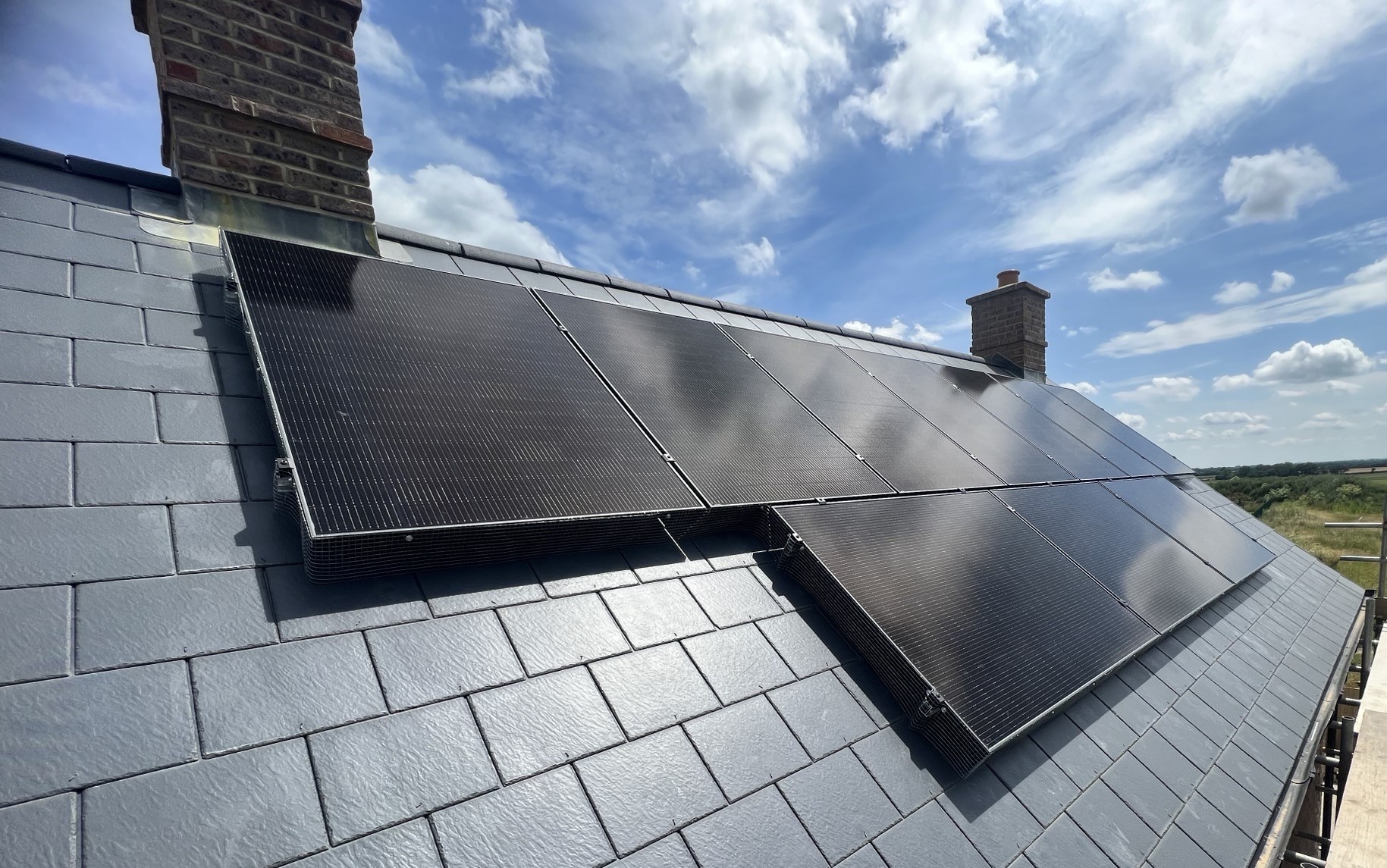Solar panels capture and convert the sun’s energy into electricity, providing a renewable source of power and a potential revenue stream. This surplus electricity can be sold back to the grid through a process called the smart export guarantee tariff or SEG. This not only encourages solar panel adoption but also contributes to a more sustainable and self-sufficient energy future.
Understanding solar battery storage

Solar battery storage is crucial for storing the excess electricity generated by solar panels. During peak sunlight hours, solar panels often produce more electricity than needed, and this excess power is stored in the solar battery for use during the night or on days with less sunlight. Additionally, solar battery storage provides the opportunity to sell excess electricity back to the grid, creating a potential revenue stream and contributing to a more sustainable energy system.
01
How Much Can You Earn by Selling Electricity Back to the Grid in the UK?
The financial benefit of selling electricity back to the grid in the UK depends on factors such as the size of the solar power system, the amount of excess electricity generated, and the current smart export guarantee tariff rates. These rates, set by energy regulators, can vary over time due to factors such as inflation and changes in the energy market. For the most current rates and detailed information, it’s recommended to check with the energy provider or refer to reliable energy market resources.
02
The Process of Selling Solar Power to the Grid
Selling solar power back to the grid is a simple and efficient process. Excess electricity generated by the solar power system is automatically fed back into the grid through a two-way electricity meter installed at the property. The electricity company keeps track of the amount of electricity used or supplied and provides a statement, crediting the excess at the current smart export guarantee rate, which can be used to offset future electricity bills or receive a payment.

03
Comparing Using Stored Solar Energy vs. Selling it to the Grid
When deciding whether to use the solar energy generated or sell it back to the grid, consider factors such as the potential revenue stream, support for renewable energy, and current electricity rates. The financial benefit of selling electricity back to the grid depends on the smart export guarantee tariff rates, which can vary. It’s recommended to consult with a solar energy expert or your energy provider to make an informed decision based on your individual circumstances.
04
The prospect of selling solar energy back to the grid in the UK appears promising.
As the nation continues to invest in renewable energy sources and strives to decrease its carbon footprint, solar power is poised to have a significant impact in this shift.
The UK government’s pledge to achieve net-zero carbon emissions by 2050 is anticipated to spur further expansion in the solar energy industry. This may potentially result in more favourable policies and incentives for individuals selling electricity back to the grid.
Furthermore, progress in solar technology and battery storage is expected to enhance the effectiveness and affordability of solar power systems. This indicates that more households and businesses can take advantage of the benefits of solar energy, including the opportunity to sell power back to the grid.
While the specifics will be influenced by future government policies and market dynamics, the movement towards renewable energy indicates a promising future for selling solar energy back in the UK.





